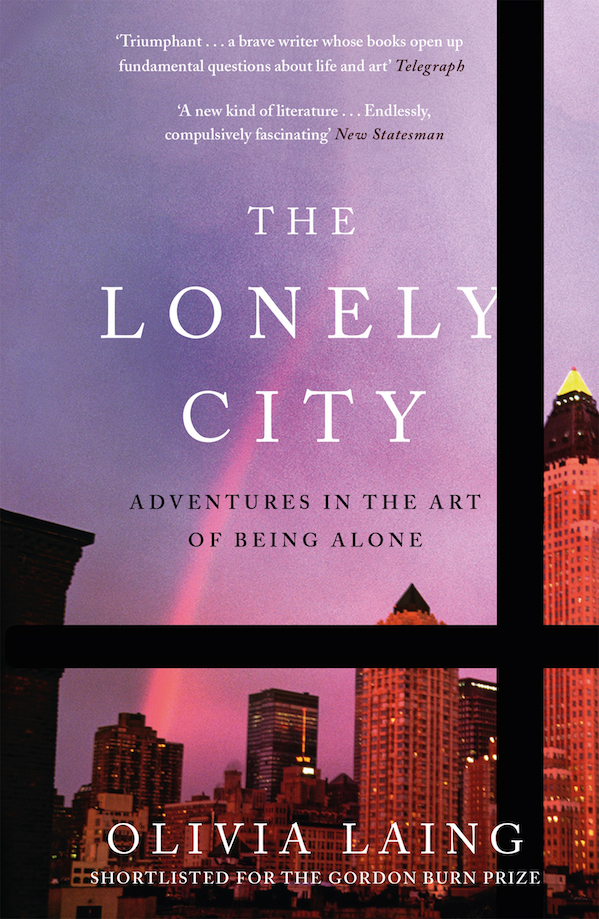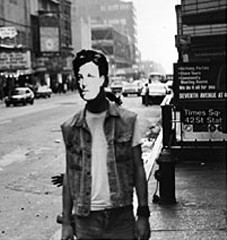Click on the image for more information, and to purchase
David Wojnarowicz: Arthur Rimbaud in New York (Times Square), 1978-79
What drives an artist to do what they do? What compels them? What are the underlying factors?
Do, what we consider ‘great’ painters, writers and performers produce because they are driven by some unseen internal forces, or, are they engaging creatively as the result of pragmatism: Create - rather than criticise? Olivia Laing would probably have us believe in the former and I would tend to agree with her. Her excellent book The Lonely City: Adventures in the Art of Being Alone has plenty to say on the matter.
Although her title doesn’t really offer a way into the main subjects of this book, it nonetheless ‘drives’ her output and provides a framework for her investigation; her own loneliness, which she expertly reveals to us, acknowledging all its inherent shamefulness. Laing describes herself as a writer and critic and she writes for amongst others Frieze, The Guardian and New Statesmen.
Whilst living in New York, where she had relocated to live with a lover, who subsequently changed his mind, she found herself instead “clinging hopelessly to the city itself”, and began to look for her mood reflected in images both of the city, and produced in, New York.
Laing has an enviable ability to write both well, interestingly and engagingly so, whilst also following her own notions of what it is that an artist does and produces. Fascinated with the image of isolation within the city, and happy not to follow the accepted wisdoms of the art history she is obviously educated in Laing looks at a number of artists and asks of their output – what is it that they do? Mixing biography whilst interrogating works themselves, her writing ranges easily between the social (and sex) lives of her artists, whilst analysing how their output deals with the uneasy subject of how they relate to others; how we feel personally inadequate in the image of the constantly ‘active’ and busy city.
Laing is also critical of gentrification, and worries that the city will suffer immeasurably due to the ‘blandification’ authorities impose on our streets as they stifle anything that transgresses accepted ‘normalities’ – how this cleaned, ‘acceptable’ image of the city ultimately make us all feel lonely: how it says nothing to us about our lives.


